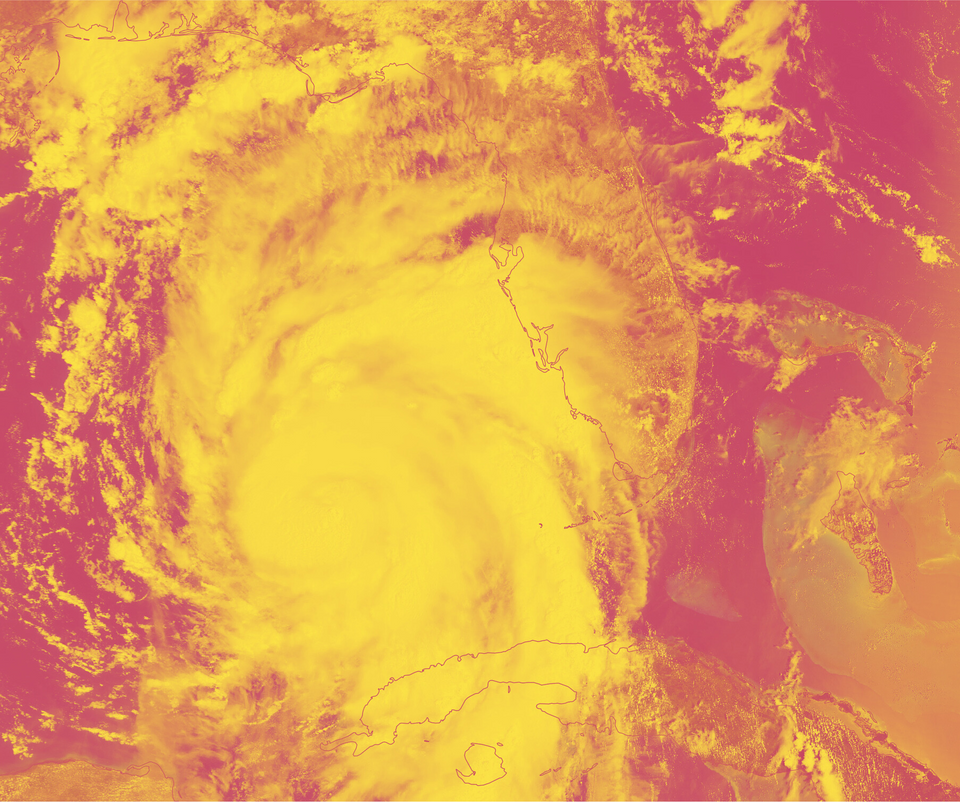Hurricane Idalia & Hard Truths

LISTENING: to the Sakura theme song
FEELING: exhausted by life!
SEEING: my niece play on her iPad
"First came the hurricane, then the morning sun."
Every time a hurricane strikes, I think of this line from Lil Wayne's "Tie My Hands." It's a sobering reminder that today's storm will pass — both figuratively and literally. It's an empowering reassurance of our resiliency. I think many of us need this message today.
As I write this, homes along the northwestern coast of Florida are underwater. Hurricane Idalia made landfall Wednesday morning as a Category 3. According to CNN, storm surge may reach up to 16 feet in some parts of the state — a state whose Republican governor is unwilling to talk about climate change's role in fueling destructive hurricanes.
In Florida and the South at large, many communities can't count on their elected officials to come save them when disaster comes knocking. They know that's a dead dream.
Instead, they must look to what's possible when they come together.
Welcome to Possibilities, a creative climate newsletter on the possibilities that lie where crisis meets community. I’m Yessenia Funes, and I'm not afraid to talk about the climate emergency.
Gov. (and presidential hopeful) Ron DeSantis may be, but we keep it real over here. I want to go further and call out what's actually strengthening storms like Idalia: fossil fuel pollution. The greenhouse gases released by oil and gas projects help the atmosphere retain more heat. This heat is disrupting global climate patterns, all while invigorating the Atlantic and endangering coastal communities.
A clear example of how elected officials continue to drop the ball on taking swift action to reduce this threat is the Mountain Valley Pipeline. I wrote about the 300-mile gas pipeline for Atmos this week — and the efforts to stop it. You'd think the record-breaking disasters of years past would encourage lawmakers against approving more fossil fuel infrastructure, but that's simply not the case.
With the Fiscal Responsibility Act in June, Congress and President Joe Biden steamrolled the Mountain Valley Pipeline despite repeated court setbacks related to its environmental impacts. The fracked gas pipeline's operation may result in six million to 89 million metric tons of carbon contributions.
Now, we've got Hurricane Idalia to kick off hurricane season in force — and the season is only halfway through. Every year that our leaders fail to reduce emissions to zero is another year they've contributed to making storms like these deadlier.
Hurricane Idalia touched down only a few hours ago as of my writing, and it's already killed two. How many more people have to die until leaders in the U.S. and beyond get their shit together?
Maybe they're betting on our demise, but in the words of Lil Wayne — who worked on "Tie My Hands" in the aftermath of Hurricane Katrina in 2005 — we're riding on love, y'all.
"[T]ry they can't steal your pride it's inside / Then find it and keep on grinding / Cause in every dark cloud, there's a silver lining." 🌀
Rest in Power
While we can't say for certain that climate change led to these specific weather events (we need attribution studies for that), we do know that the Earth's rising temperatures are already creating more disasters like these.
I'm holding love and space for those in Hurricane Idalia's path — and the two folks it's already killed.
Heavy rain in Liverpool, England, resulted in the death of a couple over the weekend.
A hiker is dead after flash flooding late last week in Utah.
In the central Asian country of Tajikistan, landslides and floods on the weekend ended the lives of at least 17 people.
I'm still thinking about all the people whose lives were cut short in Lahaina, Maui.

